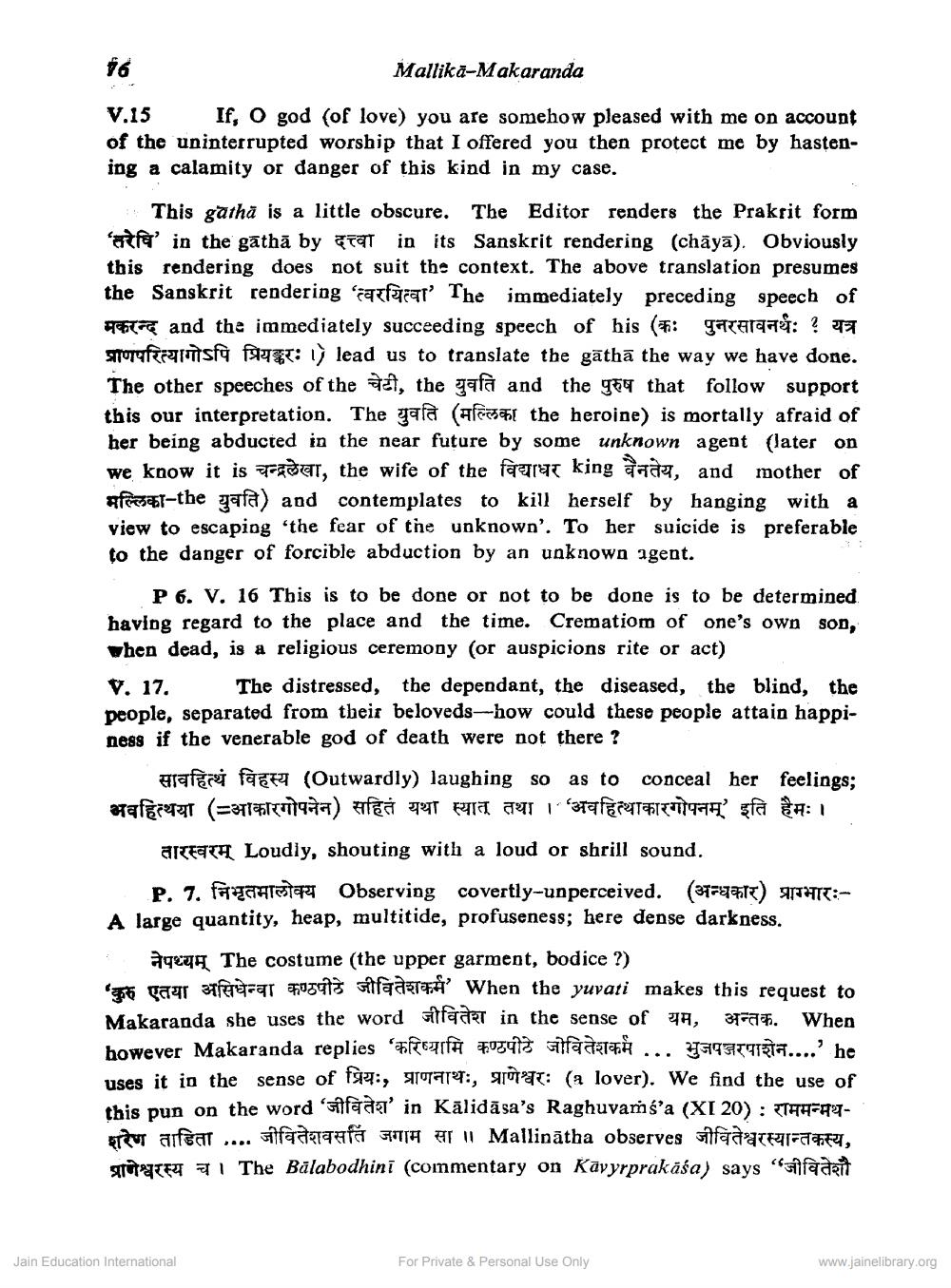________________
Mallika-Makaranda
V.15 If, O god (of love) you are somehow pleased with me on account of the uninterrupted worship that I offered you then protect me by hastening a calamity or danger of this kind in my case.
This gathā is a little obscure. The Editor renders the Prakrit form father in the gātha by TaT in its Sanskrit rendering (chāyā). Obviously this rendering does not suit the context. The above translation presumes the Sanskrit rendering afar The immediately preceding speech of 7 and the immediately succeeding speech of his (*: Catara: ? 47 StorySiis ET: 1) lead us to translate the gathā the way we have done. The other speeches of the ea, the gala and the ge4 that follow support this our interpretation. The gala (Areal the heroine) is mortally afraid of her being abducted in the near future by some unknown agent (later on we know it is चन्द्रलेखा, the wife of the विद्याधर king वैनतेय, and mother of मल्लिका-the युवति) and contemplates to kill herself by hanging with a view to escaping the fear of the unknown'. To her suicide is preferable to the danger of forcible abduction by an unknowo agent.
P 6. V. 16 This is to be done or not to be done is to be determined having regard to the place and the time. Crematiom of one's own son, when dead, is a religious ceremony (or auspicions rite or act) v. 17. The distressed, the dependant, the diseased, the blind, the people, separated from their beloveds-how could these people attain happiness if the venerable god of death were not there?
algfri faat (Outwardly) laughing so as to conceal her feelings; भवहित्थया (=आकारगोपनेन) सहितं यथा स्यात् तथा । 'अवहित्थाकारगोपनम्' इति हैमः।
arteat Loudly, shouting with a loud or shrill sound.
P. 7. fuqarolaz Observing covertly-unperceived. (377422TT) TTTT:A large quantity, heap, multitide, profuseness; here dense darkness.
Aegh The costume (the upper garment, bodice ?) 1955 Tage streetrar sifar' When the yuvati makes this request to Makaranda she uses the word जीवितेश in the sense of यम, अन्तक. When however Makaranda replies FTCh 703417 Sillastå ... STETTIA....' he uses it in the sense of th:, TTT:, Mat: (a lover). We find the use of this pun on the word 'illa de' in Kālidāsa's Raghuvams'a (XI 20): TAHF87
o aifeat .... fqqaf F# E Mallinātha observes siliqdateral, grote TFA 1 The Būlabodhini (commentary on Kāyyrprakāśa) says "sifa ait
Jain Education International
For Private & Personal Use Only
www.jainelibrary.org




